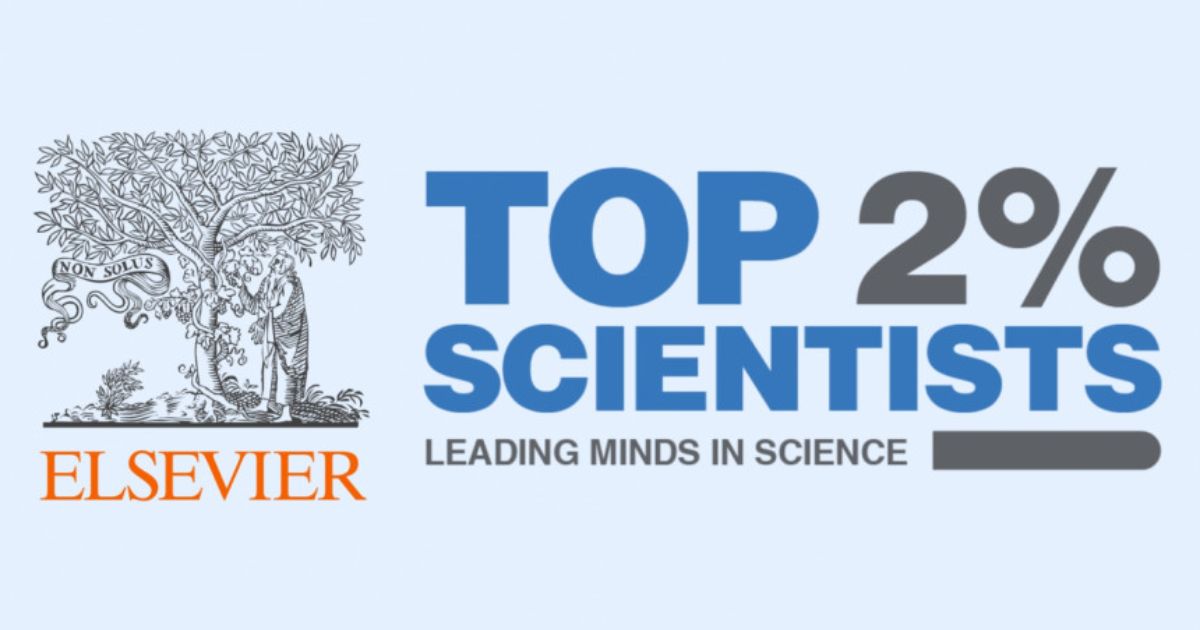MARE researchers on the “List of the world's top 2% scientists”
There are nine MARE researchers included in this year's edition of the report “Updated science-wide author databases of standardized citation indicators,” an international reference database published annually by Elsevier, which presents the most cited researchers in 2024 and throughout their careers. 
Among the most cited scientists in 2024 are MARE researchers Verónica Ferreira, Maria Dornelas, João Carlos Marques, Rui Rosa, Bernardo Duarte, João Canning-Clode, Jaime Ramos, Manuel Graça, and Luís Vítor Duarte. This annual recognition of several MARE researchers demonstrates not only individual merit but also the institution's commitment to scientific excellence in response to global challenges.
What do our researchers study?
Compared to last year, this year's edition of the report brings something new for MARE: the inclusion of researcher Luís Vítor Duarte in the list of the world's most cited scientists. His current research focuses on integrated stratigraphy, sedimentology, and geochemistry of marine carbonates and organic-rich deposits.
Verónica Ferreira, distinguished for the third consecutive year, conducts research in the field of stream ecology, with the aim of understanding how these ecosystems function and how they respond to environmental changes resulting from human activities, climate change, and vegetation infection by pathogens. For the researcher, “being included in this list is recognition for the work carried out in collaboration with students and colleagues, and it motivates me to continue researching, driven by curiosity and following the highest ethical standards.” Despite this, Verónica Ferreira says she feels “a bitter taste in her mouth when she realizes that international recognition is not accompanied by recognition from the host institutions, where I have been doing research in precarious conditions for almost 20 years.”
João Canning-Clode, researcher and founder of MARE-Madeira and currently Edinburgh Ocean Leader, chairs the Working Group on Introduction and Transfer of Marine Organisms of the International Council for the Exploration of the Sea (ICES), an area in which he has been gaining international recognition. The researcher was once again pleased with this recognition: "It is obviously an honor to be back on the list of the ‘Top 2% of the World's Scientists’, compiled by Stanford University and published by Elsevier. This recognition is, above all, a reflection of collective work, developed with an incredible team at MARE-Madeira (ARDITI and the University of Madeira).” For João Canning-Clode, “doing science from a peripheral archipelago like Madeira has its challenges, but I also recognize its unique advantages. It shows that it is possible to do science with a global impact, while promoting accessibility, innovation, and the training of new generations of scientists,“ emphasizing that it is ”a privilege to be part of MARE and contribute to the growth of the institution both nationally and internationally."
Jaime Ramos, who also returned to the individual and carrer lists for the second consecutive year, stated that “being on this list reflects a constant search for ideas, dedication to scientific research, and guidance of graduate students.” The researcher is also coordinator of the MARE-UCoimbra Regional Research Unit and the EcoTop research group: Ecology and Conservation of Top Predators, which studies habitat selection, trophic ecology, food ecology, movement ecology, and physiology for the conservation of top predators and their use as sentinels of environmental change.
from the MARE-UCoimbra Regional Research Unit, Manuel Graça was also highlighted in both lists: individual and career. Although he does not place much value on rankings, Manuel Graça was pleased with the good news: “I think this means that my work has some resonance in the scientific community,” considering that this “recognition also extends to MARE in its commitment not only to the sea, but also to inland waters.”
Bernardo Duarte, who has been honored every year since 2022, works in the field of ecotoxicology. The researcher is dedicated to assessing the harmful effects of emerging contaminants—such as cosmetics, pharmaceuticals, biocides, and metal nanoparticles—on marine organisms, with a special focus on photosynthetic organisms, which are fundamental to the balance of aquatic ecosystems. For Bernardo Duarte, "this distinction means that the work I do arouses interest and is useful for other research projects. It is gratifying to realize that what we publish has a real impact and is valued by our peers."
Rui Rosa was also very pleased with his mention: “This is recognition of the quality of the scientific work that has been produced by my team and our national and international collaborators in recent years.” The researcher, who was also included in last year's list, runs his own laboratory, the Rui Rosa Lab, dedicated to understanding how future environmental changes, such as climate change and ocean acidification, affect marine biodiversity.
The significant presence of MARE researchers on the “World's Top 2% Scientists List” reinforces the center's position as an institution of excellence in scientific research, recognized for the impact and relevance of its contribution to the advancement of knowledge.
Text by Patrícia Carvalho
